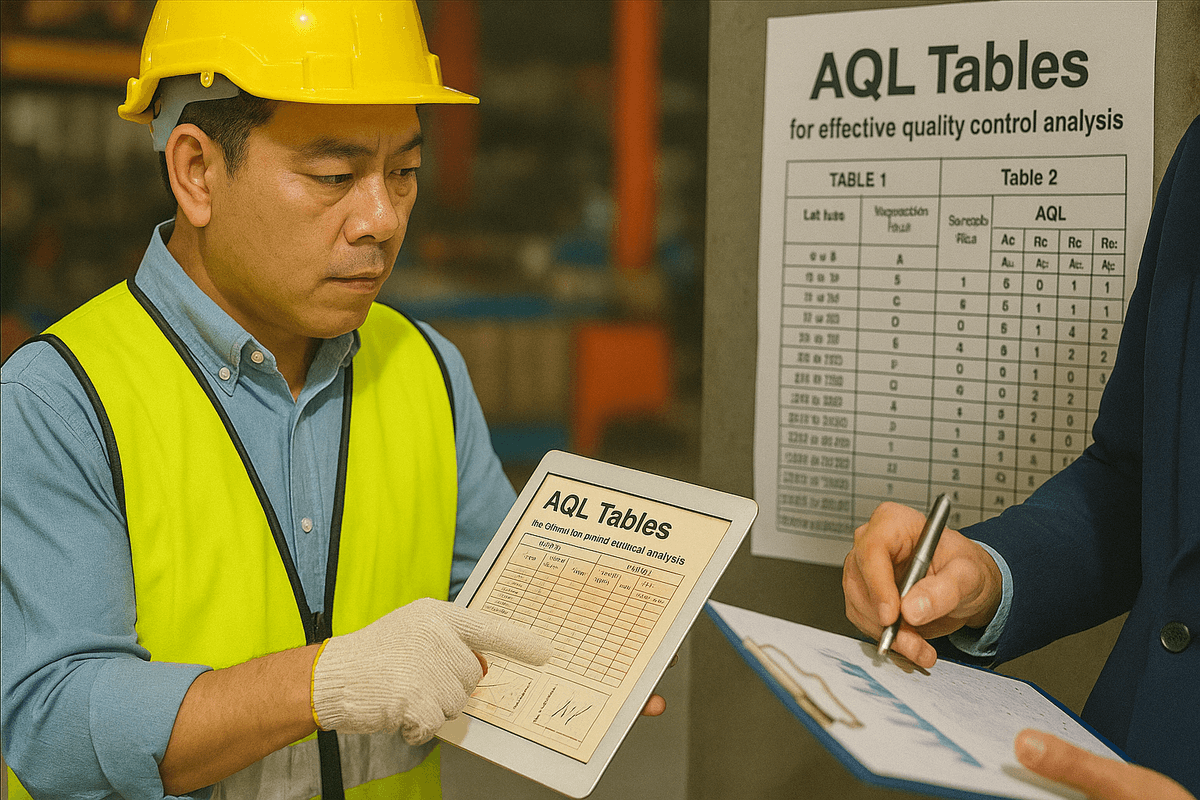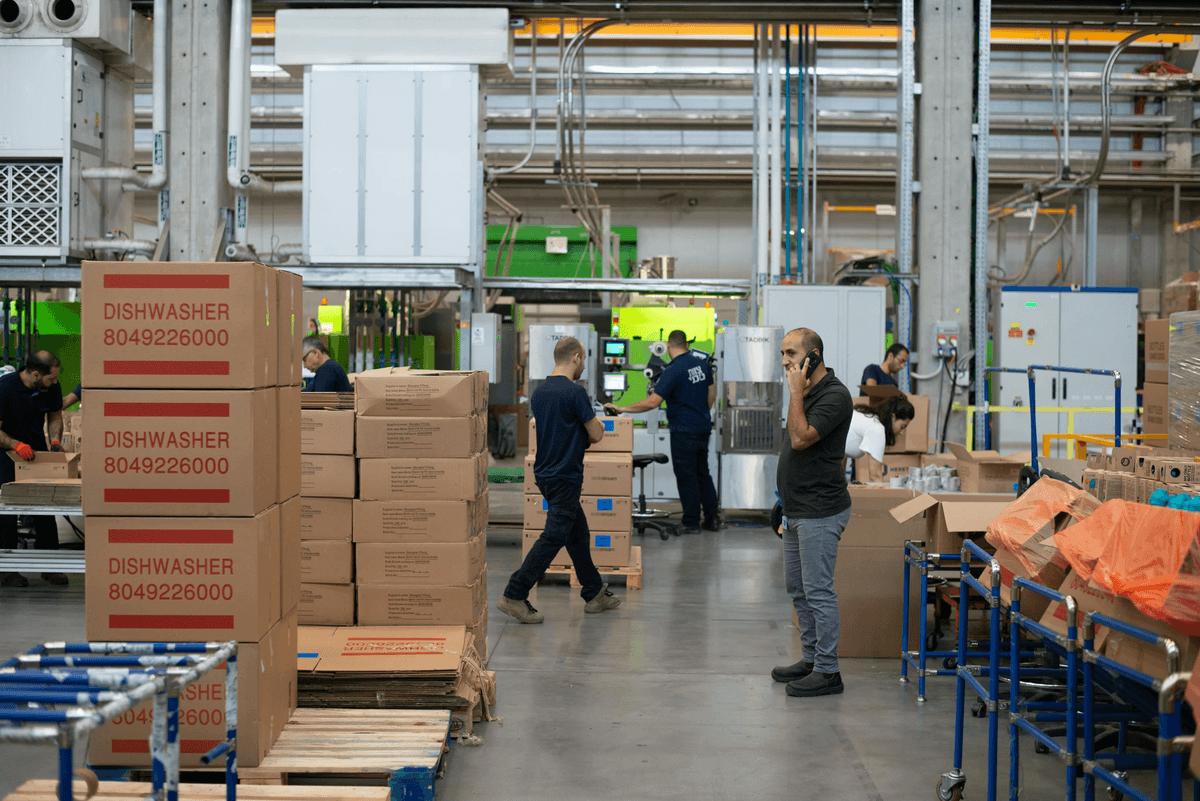Introduction
In the world of international trade, ensuring product quality is paramount for success. Quality control can make or break your business, especially when sourcing products from platforms like Alibaba. This is where a Third Party Inspection Agent comes into play, acting as your eyes and ears on the ground to ensure that what you order is what you get.
Understanding the Importance of Quality Control
Quality control isn't just a buzzword; it's a crucial element in maintaining customer satisfaction and brand reputation. When dealing with suppliers overseas, the risks associated with subpar products can be significant, leading to financial losses and damaged relationships. Implementing rigorous quality control measures helps safeguard your investments and ensures that customers receive only the best.
The Role of a Third Party Inspection Agent
A Third Party Inspection Agent serves as an independent evaluator of product quality before shipment, providing an unbiased assessment that you can trust. They conduct thorough inspections based on predefined criteria, helping identify any discrepancies that may exist between what was promised and what’s actually produced. By utilizing their expertise, businesses can mitigate risks associated with importing goods from unfamiliar suppliers.
What to Expect from Your Alibaba Supplier
When engaging with suppliers on Alibaba, it’s essential to set clear expectations from the outset regarding product quality and delivery timelines. Suppliers may vary significantly in their capabilities and reliability; therefore, understanding their processes will help you navigate potential pitfalls effectively. By collaborating closely with your chosen supplier and employing a Third Party Inspection Agent for oversight, you can foster a productive partnership built on transparency and mutual respect.
Choosing the Right Alibaba Supplier

Finding the right supplier on Alibaba can feel like searching for a needle in a haystack, especially when you’re aiming for quality and reliability. This is where having a Third Party Inspection Agent becomes invaluable, as they can help ensure that your chosen supplier meets your standards before you commit to an order. To kick off this journey, let’s dive into some essential strategies to identify the best suppliers.
Researching Supplier Credentials
First things first: do your homework! Investigate the credentials of potential suppliers by checking their business licenses, certifications, and any industry affiliations they might have. A reputable supplier will often have their credentials readily available; if not, it could be a red flag that warrants further investigation or even the assistance of a Third Party Inspection Agent to verify information.
Additionally, look for suppliers who have been in business for several years and have established themselves within their industry. These seasoned players are more likely to understand quality control standards and may already have processes in place that align with your needs. Remember, solid credentials can be the foundation of a fruitful partnership!
Evaluating Supplier Ratings and Reviews
Next up is evaluating supplier ratings and reviews—think of this as reading the Yelp reviews before dining out! Alibaba provides rating systems where buyers leave feedback based on their experiences; this is gold when choosing who to work with. A high rating coupled with positive reviews indicates not only product quality but also good customer service practices.
However, don’t just skim through the star ratings; read the actual comments too! Look for patterns in feedback—if several customers mention issues related to product defects or poor communication, it may be wise to steer clear or involve a Third Party Inspection Agent for extra assurance during your sourcing process.
Identifying Industry-Specific Expertise
Last but definitely not least is identifying industry-specific expertise among suppliers; this can make all the difference in ensuring you get exactly what you need. Suppliers who specialize in your niche are more likely to understand specific requirements and nuances that could impact product quality. For example, if you're sourcing electronics, finding a supplier experienced in that field means they’re familiar with safety regulations and testing standards.
Moreover, industry-specific expertise often translates into better communication regarding technical specifications and potential challenges during production. Partnering with such suppliers can minimize misunderstandings down the line—and if doubts arise at any point, don’t hesitate to consult with a Third Party Inspection Agent who can provide insights based on industry benchmarks.
The Benefits of Using a Third Party Inspection Agent

These professionals act as an impartial bridge between you and your supplier, providing an objective perspective on the goods being manufactured. Their expertise not only helps maintain quality standards but also fosters smoother communication throughout the supply chain.
Ensuring Consistency in Quality Standards
One of the primary advantages of utilizing a Third Party Inspection Agent is their ability to ensure consistency in quality standards across all orders. They come equipped with established protocols and checklists tailored to your specific product requirements, which means that every batch is scrutinized under the same lens. This level of consistency not only minimizes defects but also enhances customer satisfaction, allowing you to build a reputation for reliability.
Moreover, having an independent agent ensures that any discrepancies are addressed before products leave the factory floor. This proactive approach means fewer surprises down the line, saving you time and money while keeping your clients happy. In today’s competitive market, consistent quality isn’t just beneficial; it’s essential for long-term success.
Mitigating Risks with Real-Time Reports
Another compelling reason to engage a Third Party Inspection Agent is their capacity to provide real-time reports during inspections. These reports offer immediate insights into any issues detected during the inspection process, allowing you to make informed decisions swiftly. Instead of waiting until products arrive at your doorstep—when it may be too late—you can address problems head-on while they’re still at the manufacturing site.
This kind of transparency significantly reduces risks associated with poor-quality goods entering your inventory or reaching customers. With timely updates and actionable feedback from your inspection agent, you can adjust production processes or communicate necessary changes directly with your supplier without missing a beat. In essence, real-time reporting transforms potential setbacks into manageable challenges.
Building Trust in Supply Chain Relationships
Engaging a Third Party Inspection Agent also plays a vital role in building trust within supply chain relationships. When suppliers know that there’s an independent party monitoring quality standards, they are more likely to adhere strictly to agreed-upon specifications and timelines. This fosters an environment where both parties work collaboratively toward shared goals rather than viewing each other as adversaries.
Furthermore, consistent inspections and transparent reporting create accountability on both sides of the relationship—from suppliers delivering what was promised to buyers receiving exactly what they ordered without unpleasant surprises. Over time, this trust translates into stronger partnerships that can lead to better pricing agreements and improved service levels—a win-win situation for everyone involved!
Setting Clear Quality Standards

Establishing clear quality standards is the cornerstone of a successful partnership with your Alibaba supplier. By defining what you expect in terms of product specifications, acceptable quality levels, and effective communication, you set the stage for a smooth and efficient procurement process. This is where a Third Party Inspection Agent can play a pivotal role in ensuring that these standards are met consistently.
Defining Product Specifications and Requirements
You need to outline every detail about the product—dimensions, materials, functionality, packaging requirements—essentially creating a blueprint that your supplier can follow. The more precise you are with these specifications, the easier it becomes for both you and your Third Party Inspection Agent to assess whether the final product meets your expectations.
Moreover, it's beneficial to include visual aids like diagrams or photos to complement your specifications. Visuals can bridge any gaps in understanding that might arise due to language barriers or cultural differences. Remember, having well-defined requirements not only streamlines production but also minimizes the chances of costly misunderstandings down the line.
Establishing Acceptable Quality Levels
Once you've laid out your product specifications, it's time to establish acceptable quality levels (AQL). AQL provides a benchmark for what constitutes an acceptable level of defects in your products—think of it as setting guardrails for quality assurance. By working closely with your Third Party Inspection Agent during this phase, you can ensure that these levels align with industry standards while also meeting your unique needs.
Setting realistic AQLs helps manage expectations on both sides; it prevents suppliers from cutting corners while also allowing some flexibility in production processes. It's crucial to communicate these levels clearly so everyone involved understands what’s at stake. After all, no one wants surprises when it comes time for inspection!
Communicating Expectations to Your Supplier
Effective communication is vital when working with suppliers on Alibaba; after all, they can't meet expectations they aren't aware of! Make sure you're transparent about what you're looking for and how you plan on measuring success—this includes sharing details about inspections conducted by your Third Party Inspection Agent before shipment occurs. Regular check-ins and updates help keep everyone aligned and focused on achieving those quality benchmarks you've set.
Additionally, consider using collaborative tools or platforms that allow real-time sharing of information regarding production timelines and potential issues that may arise during manufacturing. This proactive approach fosters trust between you and your supplier while ensuring everyone remains accountable throughout the process. Remember: clear communication today paves the way for smoother transactions tomorrow!
Conducting Pre-Shipment Inspections

The Process of a Third Party Inspection
The process begins with the Third Party Inspection Agent coordinating with both you and your supplier to schedule an inspection date that works for everyone involved. On the agreed day, the agent will visit the supplier's facility or warehouse to conduct a thorough assessment of the products in question. This includes checking compliance with product specifications, performing visual inspections, and sometimes even conducting functional tests to ensure everything operates as intended.
Once on site, the inspection agent will follow a structured checklist tailored to your specific requirements, ensuring no detail is overlooked. They’ll assess aspects such as packaging integrity, labeling accuracy, and overall workmanship quality before moving on to more technical evaluations if needed. After completing their checks, they compile their findings into a detailed report that highlights any discrepancies or areas for improvement.
Key Areas to Focus On During Inspections
During pre-shipment inspections, there are several key areas where attention should be concentrated to guarantee product quality. First and foremost is product conformity—this ensures that what you ordered matches what has been produced in terms of specifications and design features. The Third Party Inspection Agent will scrutinize dimensions, colors, materials used, and other critical attributes against your defined standards.
Another vital area includes packaging quality; after all, how your products are packaged can significantly impact customer satisfaction upon delivery. The inspection agent will verify that packaging is not only visually appealing but also sturdy enough to protect items during transit. Lastly, it’s essential to assess labeling accuracy—incorrect labels can lead to misunderstandings about product usage or safety warnings.
Finalizing Inspection Reports for Record Keeping
After completing their evaluations, the Third Party Inspection Agent compiles all findings into an official inspection report that serves multiple purposes: documentation for compliance verification and a reference point for future orders among them. This report typically includes photographs of inspected items along with detailed descriptions of any defects or issues found during the assessment process. It’s crucial that you keep this report organized in your records since it can serve as evidence should disputes arise later on.
Furthermore, sharing this report with your supplier fosters transparency and encourages them to address any shortcomings identified during inspections promptly. Continuous feedback loops between you and suppliers based on these reports can lead to improvements in quality over time—a win-win situation! Ultimately, maintaining thorough records not only helps streamline future transactions but also builds trust within your supply chain relationships.
Working with China Inspection Pro

When it comes to ensuring quality in your supply chain, partnering with a reliable third party inspection agent like China Inspection Pro can make all the difference. They specialize in providing comprehensive inspection services tailored to your specific needs, helping you navigate the complexities of international sourcing. With their expertise, you can focus on growing your business while they handle the nitty-gritty of quality assurance.
Overview of Services Offered
China Inspection Pro offers a wide array of services designed to meet the diverse needs of businesses engaged in global trade. Their offerings include pre-shipment inspections, factory audits, and product testing across various industries. By leveraging their extensive network and local knowledge, they ensure that every aspect of your product meets established quality standards before it reaches your doorstep.
How They Enhance Your Quality Assurance Strategy
Utilizing a third party inspection agent like China Inspection Pro enhances your quality assurance strategy by providing an additional layer of oversight that is crucial for maintaining high standards. Their real-time reporting allows you to address potential issues as they arise, minimizing risks associated with poor-quality products. Furthermore, their objective assessments help build trust between you and your suppliers, fostering stronger relationships that are essential for long-term success.
Case Studies of Successful Collaborations
Numerous businesses have benefited from collaborating with China Inspection Pro to streamline their quality assurance processes. For instance, one electronics company faced significant challenges with defective products arriving from overseas suppliers; however, after engaging China Inspection Pro for regular inspections, they reported a dramatic decrease in returns due to quality issues. Another client in the apparel industry successfully improved compliance rates by implementing factory audits through this third party inspection agent, ultimately enhancing both product quality and supplier accountability.
Conclusion

In the world of international trade, ensuring quality is not just a checkbox—it's a cornerstone of successful operations. By implementing best practices in quality assurance, businesses can significantly reduce risks associated with product defects and delivery delays. A reliable Third Party Inspection Agent can be your secret weapon in maintaining high standards and fostering smoother transactions.
Best Practices for Quality Assurance
To achieve consistent quality, it’s essential to establish a robust framework that includes regular inspections, clear communication, and detailed documentation. Collaborating with a competent Third Party Inspection Agent allows you to set the bar high and hold suppliers accountable for meeting your specifications. Remember to regularly review and update your quality standards based on market trends and customer feedback to stay ahead of the game.
The Significance of Continuous Communication
Open lines of communication are vital when working with suppliers and inspection agents alike. Regular updates from your Third Party Inspection Agent about ongoing inspections or potential issues help you stay informed and proactive rather than reactive. Additionally, fostering a culture of transparency encourages trust between you and your suppliers, paving the way for long-term partnerships.
Making Informed Decisions for Future Orders
With data from inspections at your fingertips, you can make smarter decisions regarding future orders. The insights provided by your Third Party Inspection Agent will allow you to identify patterns in quality issues or supplier performance over time. This knowledge not only enhances order accuracy but also empowers you to negotiate better terms or seek alternative suppliers when necessary.
